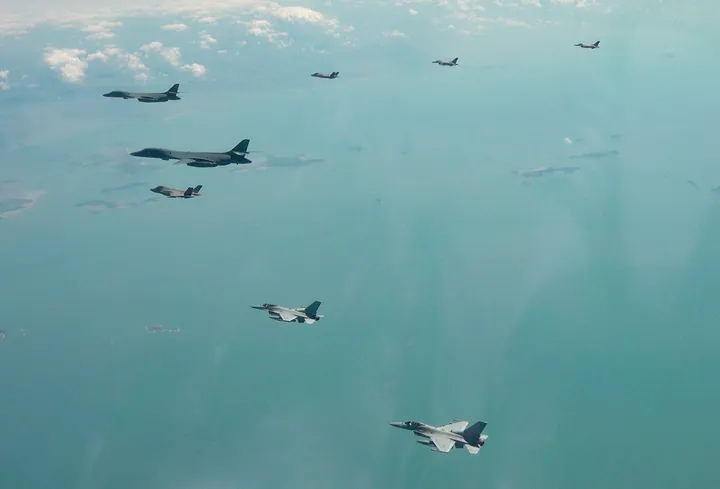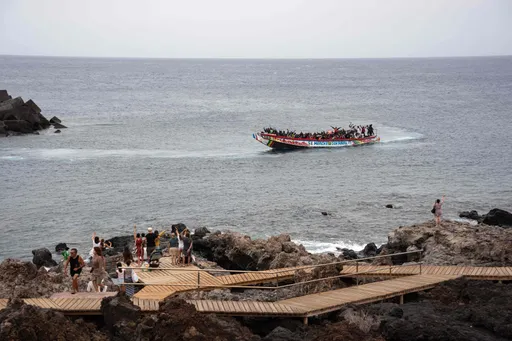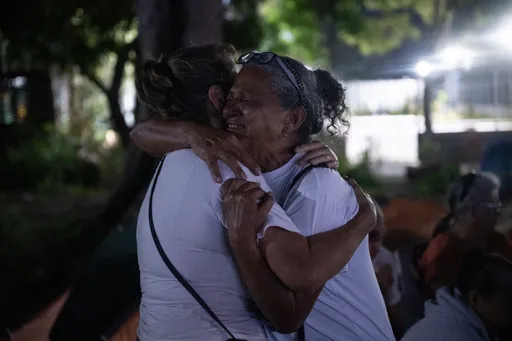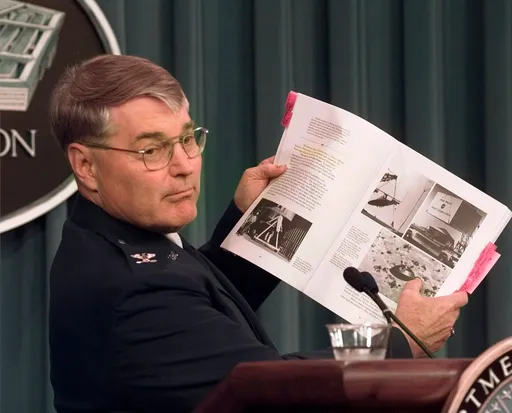If he were still alive, former Chilean dictator Augusto Pinochet might have voted for right-wing candidate Jose Antonio Kast, who seemed intent on provocation with his incessant, belligerent statements during the electoral campaign.
In October 2017, Kast took a shot at former President Salvador Allende, calling him a "dictator," and absolving the Chilean military of its role in the 1973 coup, which brought down Allende's government. Throughout the campaign, there was barely a gap of relief for the electorate, particularly the Chilean left.
The people, however, had different ideas. Kast garnered only 7.9 percent of the vote last Sunday, pushing back his pro-military agenda and the more ostentatious claims of removing Allende’s monument and "purging" the presidential palace La Moneda, "for reconciliation and to ensure that history is not written by the left."
Although Sunday’s electoral results showed the independent right-wing candidate and former President Sebastian Pinera leading at 36.6 percent, the left wasn't doing badly either, with its candidate Alejandro Guillier at 22.7 percent.
Despite the low voter turnout, Chile’s left also found a reason to celebrate: the newly formed left-leaning Frente Amplio led by Beatriz Sanchez garnered 20.3 percent of the vote. Guillier’s result represented an unexpected surge of the left, even though Pinera was leading in the polls.
Since neither candidate obtained 51 percent of the votes, a run-off election will be held on December 17. If Pinera wins, it will be the second right-wing government for Chile ever since the fall of the dictatorship in 1990.
Chilean historian Alberto Harambour said both Guillier and Sanchez were the only candidates capable of taking on the right in Chile.
Frente Amplio’s debut into politics, he said, was a force to be reckoned with, especially when it came to differences between Chile’s left and the centre-left. The latter has long been criticised for its policies, particularly in matters of education and justice, that reflect Pinochet’s culture of “forgetting” crimes against humanity and impunity.
“The results will be instrumental in forming an idea about the possibilities for Nueva Mayoria and Frente Amplio,” Harambour explained.
“There is a gap between the centre-left and the left in terms of experience in government, political perspectives and evaluation of the dictatorship and transition to democracy. It is possible that, in the coming years, there will be a displacement of votes from Nueva Mayoria towards Frente Amplio.”
Former Chilean president Ricardo Lagos has expressed his support for Guillier as the means through which Chile could embark upon a progressive agenda and confront the right.
The fractured mandate
Chile’s non-mandatory voting system has been singled out as determining the outcome of the 2017 elections. It has been said that a low turnout can deliver a right-wing victory. On the other end of the political spectrum, a weakened left wing is considered the main underlying factor affecting the voting population. Left-wing governments which prioritise the dictatorship legacy over progress for society – the anti-terror laws used to target Mapuche resistance were one example. Hence, Chile’s left was in dire need of change which has failed to happen.
Jorge Hostt, a Chilean activist, was concerned about the divide between the citizens and the candidates. He explained that there are several factors that could influence the forthcoming elections. “Since the return of democracy to Chile, citizens have been very reluctant in casting their votes. Analysts and politicians should be concerned with one main question – is there a connection between leaders and the citizens?”
The question was, indeed, one to ponder. Looking back at the electoral campaigns, one finds an array of statements, ranging from blatant defence of the dictatorship to promises of a better life. The election results so far, however, indicate that there was a yearning in Chile for a different type of politics, one that breaks with tradition by distancing itself from both the dictatorship and the errors committed by left-wing governments so far.
He added that if Chile gave another opportunity to the right to govern Chile, it should be seen “as a punishment for the Concertacion” – the coalition of centre-left political parties formed in 1988 – which throughout the years, “consolidated Pinochet’s political model, at the expense of the people.” The coalition has won every election since Chile’s transition to democracy, with the exception of Pinera’s victory in 2010.
The candidates’ electoral campaigns were another determining factor.
“Most of Chilean visual and print media is concentrated in the hands of large businesses,” Hostt explained. “The surveys conducted by such entities is another influence. It is known that some companies or research centres have links to candidates or traditional parties, mostly from the right wing. Hence surveys become part of the propaganda of one candidate or another – a very profitable business.”
Chilean historian Alberto Harambour expressed concern about the ramifications of a low voter turnout and what it said about the state of Chilean society. He said the left had failed to deliver what it promised, crushing people’s expectations. This left space, he said, “for the strengthening of right-wing activism, which is favoured by the press and in the hands of a few capitalist representatives, thus discouraging wider electoral mobilisation.”
Covert and overt right-wing influence
Behind the prediction of a right-wing victory which has been disseminated by the media, the issues affecting Chilean society, particularly impunity, stem from the dictatorship era and the inability of governments to deliver upon their promises.
Pinera and his fellow right-wing candidate Jose Antonio Kast were simply milking this long-standing disillusionment for electoral gains.
Nancy Guzman, a Chilean investigative journalist and author of several books about the Pinochet dictatorship and collective memory, was adamant that Pinera and Kast complement each other.
“In this campaign, Kast and Pinera were complementary candidates, although the rhetoric presented them as different. Pinera presented a liberal campaign, distanced from the military dictatorship and its crimes against humanity. Kast launched a conservative, anti-abortion, anti-public education, pro-use of weapons against common crimes campaign. He also expressed himself against transparency and justice with regard to the economic crimes of the military and businessmen who finance tax avoidance policy.”
Guzman further stated that “history and business interests unite the right-wing candidates at a time when there are demands for the transformation of the neo-liberal system.”
Pinera, a former Chilean president from March 2010 to March 2014, had expressed opposition in 1988 to the international arrest warrant for Pinochet issued by Spanish Judge Baltasar Garzon when the former dictator visited London. In his presidential campaigns, however, Pinera was less overtly supportive of Pinochet. But his government's policies during his presidential terms, however, reflected the dictatorship's neo-liberal model.
As president, from 2011 to 2013, Pinera faced protests as students rebelled against the privatisation of education. Students demanded the replacement of the voucher-school system with public, state-managed education. Protests were met with state-backed aggression and around 1,800 students were arrested.
During Pinera’s previous presidency there was also an attempt to remove the term “military dictatorship” from primary school textbooks – a decision that was later revoked. In 2013, Cristian Labbe, a former torture and intelligence agent, also ex-mayor of Providencia, was appointed as lecturer on the “Evolution of Political Thought in Chile” at the University of Finis Terrae.
In the 2017 electoral campaign, Pinera portrayed himself as willing to continue Bachelet’s proposed reforms, albeit with alterations regarding the boosting of individual pension funds and providing better access to education to lower-income families, while offering government financial support to the rest.
Kast, on the other hand, exhibited dramatic belligerence and disregard particularly on issues relating to Chilean memory and human rights. The son of a former Nazi official, Kast’s brothers had served in notorious DINA or National Intelligence Directorate, according to research by investigative journalist Javier Rebolledo. A recent investigation by Radio y Diario Universidad de Chile showed that Kast also received funding for his campaign from supporters of the dictatorship and a former DINA agent convicted of human rights violations. The investigation also stated that Kast was financed by the daughter of a DINA agent imprisoned at Punta Peuco Prison.
Guzman described Kast’s statements as “a reflection of Chile’s diffuse, fragile and completely neo-liberalised industry,” referring to what she viewed as the cynical exploitation of Chilean memory.
“This is what is called a memory industry,” she explained. “A large part of the country is not interested and thus has procured it into a business. Colonia Dignidad is one such example. For 44 years, people have denounced the torture and disappearances that happened there under Pinochet. But it is now also a tourist attraction, managed by the same Germans who witnessed these crimes and have never been brought to justice.”
Pedro Alejandro Matta, who was a university law student at the time of the dictatorship and survived the violations of three torture centres, said that Pinera and Kast had played a great role in popularising and normalising right-wing ideology – based on neoliberalism and individualism.
“With these candidates,” he explained, “we will probably have a long stretch of rule by the right-wing parties, until the left and progressive movements are able to rebuild ideas, programmes, dreams and projects that would again inspire people to fight for a more just society, to believe again in solidarity and to learn from our own history.”
The luxury prison controversy
In 2013, former president Sebastian Pinera closed the Penal Cordillera prison, which exclusively housed former DINA agents convicted of human rights abuses. Among those held were former National Intelligence Directorate (DINA) Chief Manuel Contreras and Miguel Krassnoff Martchenko – the latter a friend of Kast. The prisoners were transferred to Punta Peuco, a luxury prison that also accommodates former DINA and military agents.
Despite protests, Bachelet has so far refrained from closing Punta Peuco and transferring its occupants to ordinary jails. Jamie Campos dismissed the calls of holding Bachelet accountable to her promises as “an interpretation of the president’s words,” adding that there was no government resolution referring to the closing of the luxury prison.
On this issue, there appeared to be a tacit collusion across the political spectrum. Both Pinera and Kast have adamantly stated that they will not close Punta Peuco. Guiller distanced himself from previous comments about closing or utilising the facility for other purposes, saying that it would constitute a mere “symbolic action.”
Matta expounded upon the detriment of such a decision. “If Pinera wins, not only will he refuse to close Punta Peuco – a penal facility that has been labelled as a five-star jail. It is also possible that he will grant presidential pardon to some of the inmates or, in case of the older ones, place them under house arrest in their private residences.”
The Chilean military, he said, were a powerful lobby in this regard. Apart from the fact that the inmates enjoyed comfortable apartments, internet connection, family meetings and frequent medical visits to the military hospital, they were asking the Chilean public to forget the past and move on.
“Along with the pressure not to close Punta Peuco, statements from the highest echelons of the Armed Forces are asking for ‘comprehension’ from Chileans to understand ‘the context’ in which those crimes were committed and for support towards leniency towards the abusers,” said Matta, the torture survivor.
The left wing’s courting of impunity
Matta’s perception of the current political scenario in Chile took into account the end of the dictatorship and the transition to democracy. An occasion which stood out, he said, is Eduardo Frei’s defence of Pinochet in front of the British courts, which resulted in the dictator being allowed to return to Chile without answering for his crimes, including those committed against Spanish citizens in Chile.
“The political transition in Chile was built on impunity,” he added. “Chileans were never told about the political implications, negotiations and agreements that put an end to the dictatorship. Post-dictatorship governments built a culture of concealing the crimes and fear of the military. It is a culture of ‘looking to the future and not looking back’, like a stage where politicians play the game and the military acts as if it was obeying orders.”
Not only dissatisfaction, but also a growing conscience, according to Matta, could be one of the factors affecting this year’s low voting turnout. “People are fed up with politicians and there is a growing distance between them and the political class, which will be reflected in the polls. Only 40 percent, and probably less, are expected to cast their ballots.”
Harambour said that the left had taken decisions which cannot be considered as simple mistakes. “Government policies have included persistence of allowing special prisons for human rights abusers and allowing the armed forces to refrain from providing information about crimes committed during the dictatorship. The newly-appointed Commander in Chief of the Army is part of the movement censoring such information. These are political decisions, not mere mistakes.”
With a run-off vote, the Chilean left has something to ponder about. As Guillier faces Pinera next month, the left has been given a chance to evaluate itself before the final verdict of the people. It has to reverse decades-old policy disasters by going back to people with something new, something that reflects clarity and fairness in political thought.
And if Pinera wins, he's likely to face a more militant left.























